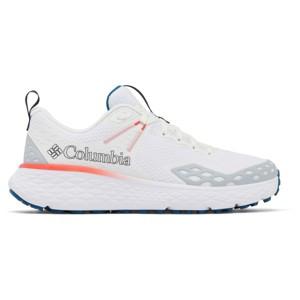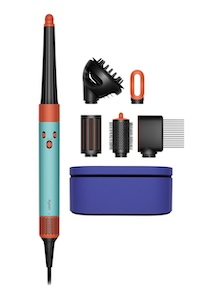
Essential customs rules and
restrictions for entering Argentina
Traveler’s Guide by Parlaxy | Updated: July 28, 2025
Planning a trip to Argentina – a captivating South American country known for its rich culture, breathtaking landscapes, and dynamic cities like Buenos Aires, Córdoba, and Mendoza – is an exciting experience. However, one important step before your journey is understanding Argentina’s customs regulations to ensure a smooth and trouble-free entry.
Whether you’re traveling to Argentina for tourism, relocating for work, or arriving for business, being informed about Argentine customs rules can help you avoid delays, fines, or having prohibited items confiscated at the border.
This up-to-date and comprehensive guide covers everything travelers need to know about Argentina’s customs policies, including:
- Duty-free allowances for international visitors
- Prohibited and restricted items not allowed into Argentina
- Declaration requirements at airports, seaports, and land border crossings
- Practical tips for a smooth customs clearance process
By preparing in advance and understanding customs procedures in Argentina, you’ll ensure a seamless arrival and begin your stay in this diverse and welcoming nation with confidence.

Read the full traveler’s guide — or better yet, bookmark this page for easy access later.
It could save you time, money, and help you avoid unnecessary hassles when passing through Argentine customs.
| Documents Required for Entry | For Non-MERCOSUR Nationals (including U.S., Canada, UK, EU, Australia, and others): To enter Argentina, you must present a valid passport that: -Was issued within the last 10 years -Is valid for the duration of your stay -Has at least one blank page for entry and exit stamps Visa-exempt countries: Citizens of countries such as the United States, Canada, the United Kingdom, European Union nations, Australia, Japan, and several others do not need a visa to visit Argentina for tourism or short business trips of up to 90 days. Visa-required countries: If your country is not on Argentina’s visa-exempt list, you must apply for a tourist visa at your nearest Argentine consulate. Visa applications should be submitted at least 30 days before travel and may require supporting documents such as proof of accommodation, return flights, and financial means. |
| Currency Export and Import Restrictions | None |
| Currency Export and Import Limits by Amount | $10,000
Amounts exceeding this must be declared. Travelers under 16 years old may bring in up to USD 5,000 without a declaration. |
| Restricted Items for Import | Travelers aged 16 or older: May bring in goods valued up to USD 500 duty-free when arriving by air or sea, or up to USD 300 if entering by land. Travelers under 16 years of age: Are allowed to bring in goods worth up to 50% of the adult allowance—that is, USD 250 by air/sea or USD 150 by land. |
| Prohibited Items for Import | Narcotics and Controlled Substances All forms of illegal drugs and controlled substances are strictly prohibited in Argentina. Possession, transportation, or trafficking of these substances can result in severe criminal penalties, including imprisonment. Counterfeit Goods The import of counterfeit or pirated items – such as fake designer clothing, accessories, electronics, cosmetics, or any goods that violate intellectual property laws—is not permitted and may result in confiscation or legal action. Protected Wildlife and Animal Products Argentina enforces international CITES regulations. This means products made from endangered species – including ivory, exotic leathers, coral, animal skins, or taxidermy items – are strictly banned. Violators may face fines and prosecution. Weapons, Firearms, and Ammunition Importing firearms, ammunition, explosives, or related materials is prohibited unless you have obtained prior authorization from Argentine authorities. Unauthorized possession is treated as a criminal offense. Certain Food Products To prevent biosecurity risks, Argentina restricts the entry of meat, dairy, and fresh produce from abroad. Specifically: Items like raw meat, milk, and cheese are generally not allowed. Exceptions may be made for commercially packaged infant formula, baby food, or medically necessary dietary products, provided they are sealed, labeled, and within quantity limits. |
| Alcohol Import Regulations | Adults (18 and over): -May bring up to 2 liters of alcohol duty-free when entering Argentina from non-bordering countries. -Limit is 1 liter if arriving from bordering countries (e.g., Brazil, Chile, Paraguay, Uruguay, Bolivia). Minors (under 18): Allowed half the adult allowance (1 liter or 0.5 liter depending on origin). |
| Alcohol Export Regulations | As of 2025, Argentina does not impose specific restrictions on the export of alcohol for personal use |
| Tobacco Product Import Regulations | As of 2025, Argentina allows travelers aged 18 and over to bring limited quantities of tobacco products into the country for personal use without paying duties. These duty-free limits are: -200 cigarettes -50 cigars -250 grams of smoking tobacco Travelers under 18 years of age are generally not permitted to import tobacco products into Argentina. |
| Tobacco Product Export Regulations | As of 2025, Argentina does not impose specific restrictions on the export of tobacco products for personal use |
| Restrictions on Importing Medications and Dietary Supplements | Prescription Medications: Must be carried in the original packaging. Must be accompanied by a valid prescription or doctor’s note, ideally translated into Spanish or English. Controlled substances (such as opioids, certain painkillers, or steroids) require prior authorization from Argentine health authorities and are strictly regulated. Quantity Limits: Medications sourced within Argentina or legally imported can generally be brought for up to 12 months’ supply. For medications obtained abroad, a reasonable personal use quantity (typically up to 6 months’ supply) is allowed, subject to customs approval. Dietary Supplements: Allowed if they are legally sold and labeled in Argentina. Supplements from abroad must comply with Argentine safety and labeling standards. |
| Restrictions on Importing Jewelry and Luxury Goods | 2% import duty on jewelry applies to both personal and commercial imports into Argentina |
| Restrictions on Exporting Jewelry and Luxury Goods | While personal use items are generally allowed, exporting jewelry exceeding certain values may attract taxes and duties |
| Restrictions on Importing Items of Artistic and Historical Value | -The importation of items with artistic, historical, or archaeological significance is strictly regulated and often prohibited without prior authorization. -These items are protected under Argentina’s cultural heritage laws to prevent illegal trafficking and preserve national treasures. -To import such items, you must obtain prior authorization from the Argentine Ministry of Culture. -Detailed documentation is required, including proof of authenticity, origin, and provenance. -Attempting to import without authorization can lead to confiscation and legal penalties. |
| Restrictions on Exporting Items of Artistic and Historical Value | Similar restrictions apply to the export of cultural property |
| Restrictions on Importing Pets | -Your pet must have a microchip implanted before the rabies vaccination is given. -The rabies vaccination must be administered at least 21 days before arrival. -You must carry a valid rabies vaccination certificate. Documentation Pets must have either an official health certificate issued by a licensed veterinarian or an international pet passport, confirming compliance with Argentina’s import requirements. Purpose of Import Pets must be imported for personal, non-commercial use only. Breed Restrictions Certain dog breeds may be restricted or banned from entry; check current Argentine regulations before travel. Customs and Veterinary Checks Pets are subject to inspection by customs and veterinary authorities upon arrival. Preparation Begin all necessary vaccinations and paperwork at least 30 days before travel to ensure compliance with Argentine regulations. |
| Restrictions on Exporting Pets | -Pets must have a microchip implanted for identification. -Rabies vaccination is required for pets over 3 months old, administered at least 21 days before export and valid at the time of travel. -A veterinary health certificate, issued within 10 days prior to departure, confirming the pet is free of contagious diseases, is mandatory. -An official international veterinary certificate endorsed by Argentine veterinary authorities is required. -Exporters must notify the relevant border authorities at least 24 working hours before departure. -Pets must travel in IATA-approved carriers providing adequate space and ventilation. |
Latest news – customs rules, travel alerts & more
Earn while traveling with Parlaxy
Connect with a shopper and deliver for a fee
Parlaxy Wiki is a customs guide designed for travelers who prepare smartly. We’ve gathered all the latest information by 2025 so that the Parlaxy community has access to up-to-date customs rules and restrictions for different countries, as well as insights into popular destinations and travel tips for exploring various corners of the world. Discover the world with Parlaxy Wiki!
Parlaxy connects those who need to purchase items from another city or country with travelers planning trips to those destinations. Parlaxy is not only a convenient platform where buyers can order products from anywhere in the world and travelers can earn by delivering goods along their travel routes—it’s also a reliable source of current travel information worldwide.
Create an order if you’re shopping, or create a trip if you’re ready to earn while traveling!







